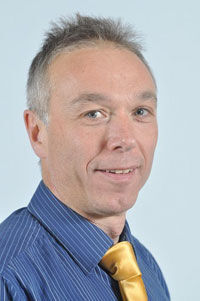University News Last updated 15 September 2010

Town and country planning in England is undergoing one of its most fundamental changes since the inception of the planning system in 1947. However, a planning expert at Birmingham City University believes that the current localisation agenda will lead to ad hoc and parochial planning based on short term needs rather than set within a planned framework of sustainable development.
Dr Alister Scott, a Reader in Spatial Planning at Birmingham City University, says: “As the Coalition Government moves at breakneck speed abolishing Regional Spatial Strategies, Regional Development Agencies and severely cutting resources in Natural England and other key government agencies, it is in effect, dismantling spatial planning in what amounts to the biggest change in the planning system since 1947.
“The whole exercise is more about politics than about the ideal of planning in terms of creating quality places, environment and community. The localisation agenda is important but is part of a hierarchical system of plans and policies, regulations and directives that affect our lives. For example there are legal European requirements with regard to the appropriate assessment of ALL plans and strategies which local people can’t side step and this could mean any community-led plans would fail to be enforceable. Who will assess these plans given that the cuts/abolitions to key agencies such as Regional Development Agencies, local authority planning departments and Natural England create an institutional vacuum that will not be filled by the Local Enterprise Partnerships?”
Dr Scott sees an urgent need to learn the lessons from the many past government interventions in planning and to raise wider public understanding of the importance of planning profession itself. He added: “Planning is a political football being kicked by a top down state-led Labour team versus the laissez faire localised Tory-Liberal coalition team. All too often the proverbial planning baby is thrown out with the bathwater as planners face changes to their roles and work further de-motivating the planner and knocking the profession. And yes we as academics have failed to stand up for the now beleaguered planner.
“We need spatial visions of the kind of towns and countryside we want in England which allows professional planners to use their tools to enable that vision to be realised. Such visions require people to work across multiple scales (European, National Regional and local) within a long term perspective to join up the opportunities and constraints for particular developments. This requires strong and effective economic and environmental agencies to support and foster the best developments in the best locations. Yet these are the very agencies under threat in the localisation agenda. The resulting vacuum will plunge the planning system into a black hole of uncertainty which goes against the whole purpose of planning.”
Dr Scott’s ideas for a more joined-up planning approach are contained within a recently awarded inter-disciplinary research project within the rural-urban fringe. He secured a £145k grant under the UK Research Councils’ Rural Economy and Land Use Programme (Relu) as part of the environmental change agenda addressing the need for improved management of the rural-urban fringe.
Dr Scott says that the fringe represents a key planning ‘battleground’; a ‘messy’ place where town meets countryside and where important economic, environmental and cultural spaces require comprehensive visions based on sound planning arguments and decisions.
“With no proper thought we tend to view the fringe in terms of urban needs with the debate narrowly centred on where the next phase of housing will go (or not) with little regard to the wider picture of how we might live our lives. Such an urban focus on development merely creates more commuting, more traffic, more congestion and more environmental decline. By refocusing on the environmental change agenda and wider societal needs we might see new ideas in terms of local food production, sustainable tourism and new communities,” he added.
Dr Scott’s work supports Birmingham City University’s agenda to engage in research that makes a real difference to policy.
- The planning system is heading into a black hole of uncertainty which goes against the whole purpose of planning (on Views@BCU Blog)